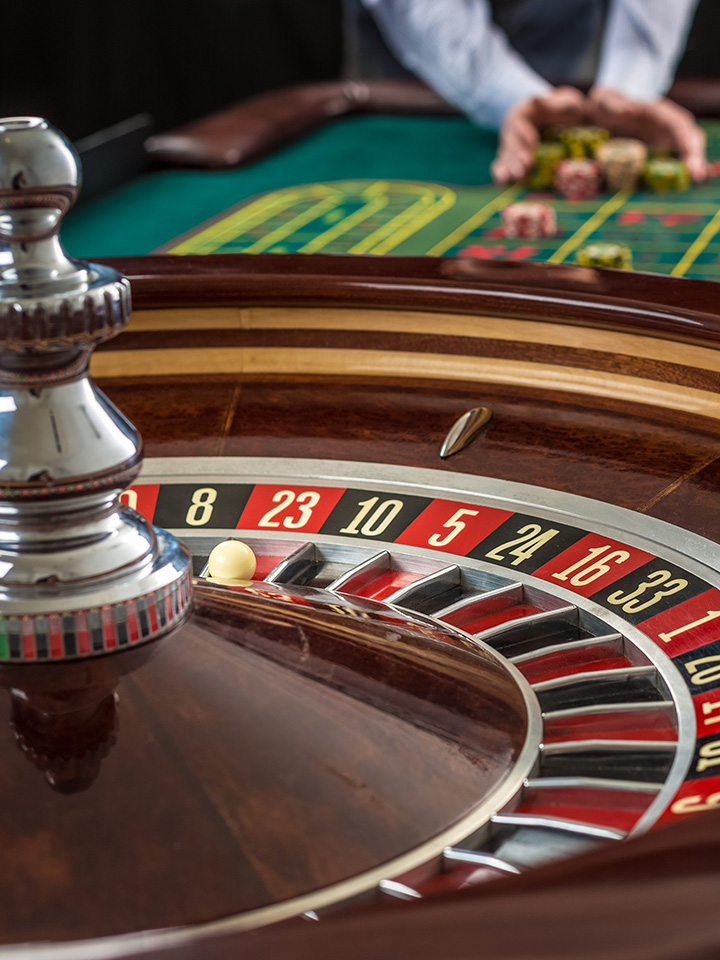In the colorful world of casinos, not many games capture the attention and excitement of players similar to slot machines. The blinking lights, engaging sounds, and the thrill of potentially hitting a jackpot turn casino slots a preferred choice for a lot of people. Kết quả bóng đá However, under the alluring exterior lies a complex system known as slot algorithms that governs how these games operate. Grasping how these algorithms work improves the appreciation for the game and aids players make better choices.
Here, we takes a deep dive into the mechanics of slot algorithms, unraveling the intricacies that govern everything from reel spins to payout rates. We will explore how randomness is achieved, the role of payout percentages, and the different types of slot machines available at present. Whether you’re a seasoned player or a newcomer eager to learn more about casino slots, this exploration will provide valuable insights into how these popular games operate.
Comprehending Machine Algorithms
Machine algorithms are the foundation of casino slot games, deciding how each turn generates outcomes. At the core of these algorithms are RNGs, commonly referred to as RNGs, which ensure that each spin is totally arbitrary and independent from the prior one. This arbitrariness is vital for maintaining equity in the game, allowing players to have a reasonable expectation of winning based on chance instead of foreseeable results.
In furthermore to RNGs, machine algorithms use various coding techniques to manage the casino’s mechanics. The RTP percentage, or RTP, is a key element that players should consider. This percentage indicates the average amount of funds that players can anticipate to win back over time. For instance, a slot with an RTP of 96% will theoretically return 96 USD for each 100 dollars wagered, although actual outcomes can differ significantly in the short term due to the arbitrariness of every spin. Bongdalu
Furthermore, slot machines include features like volatility and hit frequency, which guide the player’s experience and potential payouts. High variance slots provide larger jackpots but less regular payouts, whereas low volatility slots offer greater consistent, smaller payouts. Understanding these factors assists players choose the machines that align with their plans and appetite, eventually improving their experience in the casino slots environment.
Types of Slot Machines
Slot machines come in various types, each offering distinct gameplay experiences. The classic slot machines, often referred to as fruit machines, are characterized by their straightforward design with 3-reel configurations and a limited number of paylines. These machines typically feature traditional symbols such as fruits, bar symbols, and number seven. They are designed for gamers who enjoy a simple gaming experience without intricate bonus features. The appeal of classic slots lies in their nostalgia and simplicity, making them well-liked among both novice and seasoned players.
Modern video slots have transformed the casino slots game landscape by incorporating advanced graphics, animations, and engaging themes. These machines usually feature 5 or more reels and several paylines, providing players with numerous ways to win. Video slots often include captivating bonus rounds, complimentary spins, and interactive elements that enhance the overall experience. This type of slot machine caters to a wide range of players, as they can find games based on popular movies, gaming franchises, or fantasy themes, making the gameplay more entertaining.
Progressive slots are another thrilling variant that attracts those looking for life-changing wins. In these machines, a small portion of each bet contributes to a cumulative jackpot that continues to grow until someone hits the big win. Progressive slots can be found in both traditional and video formats, and they often come with diminished base payouts but offer the enticing chance to win massive prizes. This combination of high risk and high reward is appealing to players who seek excitement in their casino slots game experience.
The Importance of Randomness in Slot Machines
In the realm of casino slots games, randomness is the driving force that ensures each spin is one-of-a-kind and erratic. This aspect is crucial because it generates the excitement of potential wins and keeps participants engaged. The randomness is typically generated by Random Number Generators, which are programs designed to produce a stream of numbers that do not have any discernible pattern. This innovation simulates the randomness of traditional mechanical slots, ensuring that today’s digital slots maintain the same level of surprise.
Every time a player presses the spin button, the RNG establishes the result of that individual spin, affecting the symbols that land and whether a player will receive any prizes. This means that each spin works independently from the last spins, and the odds remain stable regardless of the outcomes of past spins. This aspect of randomness prevents players from creating strategies that could outsmart the house edge, emphasizing the notion that slots are games of chance where luck plays a significant role.

Additionally, the integration of randomness in casino slots games also fosters honesty and equity. Game developers must comply with strict standards, making sure that their RNGs produce results that are truly random and unbiased. This dedication to integrity helps build trust between players and casinos, giving them confidence that every spin offers a fair shot at winning. In the end, the role of randomness not only fuels the enthusiasm of casino slot machines but also protects the equity essential to their attraction.